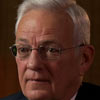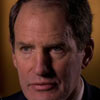David Leonhardt The New York Times
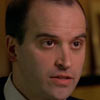
The Democrats are quick to say when President Bush came to office, all was good. He had surpluses as far as the eye could see. Is that a fair characterization?
That's not entirely fair, because the downturn in the economy in 2001 was not the doing of President Bush, really, in any definition. … We got this bubble in the stock market, and the bubble peaked in early 2000, when President Clinton was still in office. And then it started to lose air. It lost air for most of 2000, and job losses began in late 2000. …
Now the critique of President Bush from a fiscal standpoint -- the idea that he inherited a government in good fiscal condition and did not bequeath a government in good fiscal condition -- is absolutely accurate, and that was, by far, mostly his doing. It was not mostly outside events.
What did he do?
He did a few things. He cut taxes really significantly, with the bulk of the tax cuts going to people at the top. …
The old Republican line is it's fine to cut taxes as long as you cut spending. But he … increased spending significantly. He started a new entitlement program -- Medicare Part D, the prescription drug benefit. He started a very expensive war in Iraq, and even apart from the debate about whether that war was a good idea, he clearly didn't pay for the war. He didn't even put it in his budget in the main way they budgeted, so he didn't really even pretend to pay for it.
And the combination of the tax cuts, the war in Iraq, Medicare Part D and some other things meant that he essentially did not run the government as if it needed to make its payments over the long term. He ran it as if it was fine to have a huge deficit.
… What were they doing?
There are two schools on that. There is the school that they knew what they were doing, and were very much hoping to "starve the beast" -- the idea that if you cut taxes, eventually it will force the government to rein in spending. … That is an argument that historically has little basis in fact, but it's a plausible hypothetical argument.
The other argument is they didn't really expect that to happen, but they didn't care too much. The people doing the budgets for President Bush understood that they weren't going to be around to have to balance the budget. That's the sort of conspiratorial argument that some Democrats believe. They believe that basically Republicans now have become the part of fiscal liberals; that they are happy to run up huge deficits and then force the Democrats to clean them up. …
[What is] the Bush economic legacy?
I think it is hard to take much positive out of the Bush economic legacy. I asked, actually, a number of Republican economists in the waning weeks of the Bush administration that question. I said to them, "What positive do you take out of what this administration did?" Some of them mentioned the reductions of the marginal tax rates, which they think make the economy more efficient. But some of them said to me, "I take essentially nothing positive from this administration." …
To me the most disappointing thing about it is that he came into office with some pretty important ideas about reforming the economy, and he really didn't follow any of them. He appointed this tax commission in 2005 to talk about tax reform, and they came out with this really thoughtful report. It was a bipartisan commission; it was run by Republicans but it had Democrats on it, and it came out with all these thoughtful ideas for reforming the tax code to make it simple, to get rid of some deductions, to lower rates. He showed no interest in it. He put none of his political capital behind it. He instead decided to push this idea of privatizing Social Security or privatizing parts of Social Security, which went nowhere.

The tax cuts were driven by ideology and, I want to say, not a stupid ideology. Other things equal, I'm in favor of lower taxes myself. So I think there was a case for what they did on the tax side.
But it had huge implications for deficits. Any fiscally responsible administration would've attended to that. And if you were going to cut taxes as much as they did, at the very least you would've tried very hard to squeeze down on the spending side, so the deficit didn't run out of control. And they failed to do that.
… I don't think that there was a thought-out strategy ... schemed to increase the size of government. That doesn't strike me as a plausible interpretation of Bush's motives. I think on the spending side it was mainly neglect. The net result was dreadful, absolutely. …
Here's another way of looking at it. There were certainly any number of people inside the Republican Party who said if you want to get spending under control you must starve the beast. You must, essentially, push the government toward bankruptcy, so that they have to reduce spending.
Yeah, some Republicans do think that, it's true. … The evidence, to my mind, is absolutely clear that it doesn't work. That isn't the way to get the deficit down.
Because?
I think the system has demonstrated a dangerous tolerance for big and growing deficits. There's a feeling that we're getting away with it. We're borrowing 3 percent or 4 percent of GDP a year, whatever it might be, and it's fine. Foreign investors are pouring money into the U.S. What's the problem? That's the trouble. And then you keep doing that, the debt rises, and eventually you hit a wall.
Paul O'Neill Secretary of the Treasury, 2001-02
Did you walk into the Oval Office at any point, you and the president, and say, "Mr. President, I've got to put it on the line: For the country and for the administration, this is a terrible idea"?
I just kept talking about the facts, you know. I didn't ever go in and say, "Hey, this is awful; I'm not going to be part of this." But I said over and over again what I just said to you about the reasons why we shouldn't do this.
To him?
Absolutely to him, multiple times.
What was the president's response?
You know, he didn't really respond.
Nothing?
No.
He had to say a word or two.
No, absolutely not. That was my experience the whole time I was there. I said lots of provocative things to him, and I never really got a response. ...
How about the vice president? Did you talk to the vice president about this?
I did. Well, he told me, as [Ron] Suskind famously reported in the book he did about me, [The Price of Loyalty], the vice president said to me, maybe in November 2002, "Ronald Reagan proved budget deficits don't matter."
He said that to you?
Absolutely. Sat right next to me in the Roosevelt Room. I'll never forget because I was so stunned that anybody could believe that Ronald Reagan proved that budget deficits don't matter.
What did you say in reply?
I was stunned. I didn't say anything. I just sat there in disbelief that a person I thought I really knew well, having worked with him since 1969, believed this idea strong enough to say it in a room full of people. ...
Allan Hubbard Assistant to the President for Economic Policy, 2005-07
As you know, President Bush inherited a recession, and recessions always result in significant reduction in the amount of revenue coming in to government. And that happened again, and the president came in recognizing that a recession was beginning. He immediately recommended broad tax cuts, which he was able to get passed through Congress in the first year of his first term. That was in '01.
In '03 [he] came back with additional tax cuts, and the result was really very strong economic growth. And economic growth is the way you deal with deficits. When you have a strong, growing economy, then obviously there's a lot more revenue for lots of things, most importantly dealing with the deficit.
And the deficit under President Bush dropped dramatically. I think it peaked at $400-and-some-odd billion and then dropped to around $160 billion in fiscal year ending '07. And $160 billion is really a very small number, because what's important is not the absolute number; it's to look at the deficit as a percent of GDP [gross domestic product], and $160 billion was about 1.3 percent of GDP.
Anytime your deficit as a percent of GDP is lower than economic growth, then that means your overall debt as a percent of GDP is dropping. And that's what's important. ... So you don't have to run a zero deficit; you just have to run a deficit that's smaller than the growth of the GDP. That's what the president accomplished, and unfortunately we've now gone into another recession. And so this past fiscal year ending Sept. 30, '08, the deficit ballooned back to over $400 billion, and for '09 it's going to be significantly larger than that.
Going back to the tax cuts, we spoke to [Treasury Secretary from 2001 to 2002] Paul O'Neill last week, and he considered the second run of tax cuts to be gratuitous and politically motivated. What's your response to that?
Oh, my goodness. I'm a big believer -- and many economists certainly believe -- that the less you tax something, the more you get of it. We want a bigger economy because that means a higher standard of living for the American people. So anytime you're reducing taxes, it's a responsible move, obviously as long as you're not allowing the deficit to be out of control.
The tax cuts of '03 were very, very important, because they reduced taxes on capital, and capital investment is what drives economic growth. When you're investing in plants and equipment, when you're investing in research and development, when you're investing in new businesses and reducing the taxes on capital gains, the taxes on dividends, it was so, so important to economic growth. And I just hope that President-elect Obama and Congress will extend those taxes.
Judd Gregg Ranking Member, Senate Budget Committee (R-N.H.)
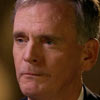
Way back in 2000, there were surpluses projected, and that had come after some good luck with the economy and some hard work. And then came along this massive tax cut. Was that in retrospect a mistake?
No, absolutely not. The surpluses that were projected weren't lost because of the tax cut. They were lost because of … the fact that we went into a recession as a result of 9/11 and the Internet bubble bursting, … much like the real estate bubble we are going through today. … The surpluses which we were running, which we thought we were going to run for a long time, simply weren't realized as a result of those two events.
And it was appropriate during that time of an economic slowdown to actually cut the tax burden, so that people would go out and invest and would go out and take risks and would go out and create jobs. And that's exactly what happened. So I look on the tax cuts as having been a very favorable event in terms of economic policy during a very difficult time. …
You're concerned about spending. We have [Federal Reserve Chairman Alan] Greenspan putting money out there to beat the band; didn't take the punch bowl away when the party got started. We have tremendous deregulation, which allowed this casino to sit on top of the real economy. And we have some wars that -- according to [economist] Joseph Stiglitz, Iraq alone … is a $3 trillion war. Does that suggest that the Republican Party has not been a good steward of the government and the problem that you are concerned about, the national debt?
There is no question the Republican Party did not do a good job governing on the side of fiscal restraint, which should be one of our strengths. Here's a party who have always stood for fiscal restraint, a smaller government, lower taxes and a strong national defense. …
But there is no question we didn't do a good job on restraining the growth of government, and we spent a lot of money we didn't have. Things like the [Medicare] Part D drug program were truly a big mistake from the standpoint of fiscal policies. The Part D drug program alone added an $8 trillion unfunded liability to the federal books. If we were going to put that program on the books, we should have paid for it.
What happened to the Republican Party during those eight years?
What happened was that conservatives, when they took the majority position in the government, decided to use the government in a very aggressive, conservative way to promote conservative programs and to spend money for conservative initiatives.
Isn't that sort of not the conservative position?
Absolutely. I think you'll find I voted against almost all that spending.
But as you were watching this happening, were you saying, where is my party? What's going on?
I think I said more than a few times that these policies could not be sustained and that they were inappropriate. I said that and voted against the Part D drug program. I said that and voted against the highway bill. I said that and voted against the farm bill. The momentum for spending was very strong, and the Republican Party did not discipline it when it was in power.
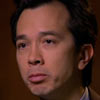
You are really critical of President Bush, aren't you?
I am.
At heart, why?
Because I think that, time and again, he put politics ahead of economics. He decided, if there was a politically smart way of doing something and an economically smart way of doing something, he always chose the politically smart way. And I am critical of him, too, because I think he knew better. ...
His father, Bush 41, in 1990, endured some very serious political pain to do the right thing to get the deficit down. And one of the steps that Bush and Congress took at the time was the Budget Enforcement Act, which created spending caps on discretionary spending and created a rule called PAYGO, or "pay as you go." And this rule basically meant that if you wanted to introduce a new tax cut or a new spending program, you had to find a way to pay for it with an offsetting tax increase or spending cut.
In 2002, that rule expired, and the Democrats in the House wanted to renew it because they felt it had been an important discipline on Congress' spendthrift ways. And Bush and his fellow Republicans said: "Well, we only want to renew it for spending. In other words, spending increases, you have to find a way to pay for [with a] spending reduction. But we don't want it for tax cuts." … And so that conveniently allowed them to continue to cut taxes without recognizing the fact that these would add to the deficit.
Look, if you want lower taxes, fine, but recognize the fact that you need a smaller government in return. If you want a bigger government, fine, but recognize that people need to pay higher taxes. I think Bush must have known that, but he was never willing to confront that or make his Congress or the American people face that fact.
David Wessel The Wall Street Journal

President Bush got a lot of ridicule for saying what everybody should do after 9/11 is go shopping. I'm a little less harsh on that than some people, because I think one of the things that he was saying is we have to lead a normal life; we can't let the terrorists scare us into hiding under our beds. …
But in retrospect, it was one of those signals to Americans that you can spend your way out of everything. Go get your credit card, go get another mortgage, and go and spend and spend and spend. There was never any attempt during the Bush presidency to slow that down.
The president declared, for instance, that it was his goal that every American should own a house. Well, every American shouldn't own a house. Some people don't make enough money to pay a mortgage and maintain a house, and they should rent. And they shouldn't be made to feel that there's something un-American about not having a mortgage.
But the pressure to lend and to get a mortgage was so great that we ended up lending to a lot of people who couldn't afford the mortgages. And they couldn't pay them back, and now they lost their house.
A number of people we've spoken to point to the fact that after Sept. 11, he didn't really ask for a sacrifice.
President Bush was consistent; he didn't ask for a sacrifice on anything. He didn't ask for a sacrifice for Iraq. He didn't ask for a sacrifice for homeland security. It was a kind of maybe wishful thinking that we could have it all and he would never have to deliver any pain to people. Even his Social Security fix was kind of designed as, nobody is going to be at risk, everybody was going to be better off. So I think it was a theme of his administration, and it cannot be a theme of the Obama administration because the circumstances are so different.


